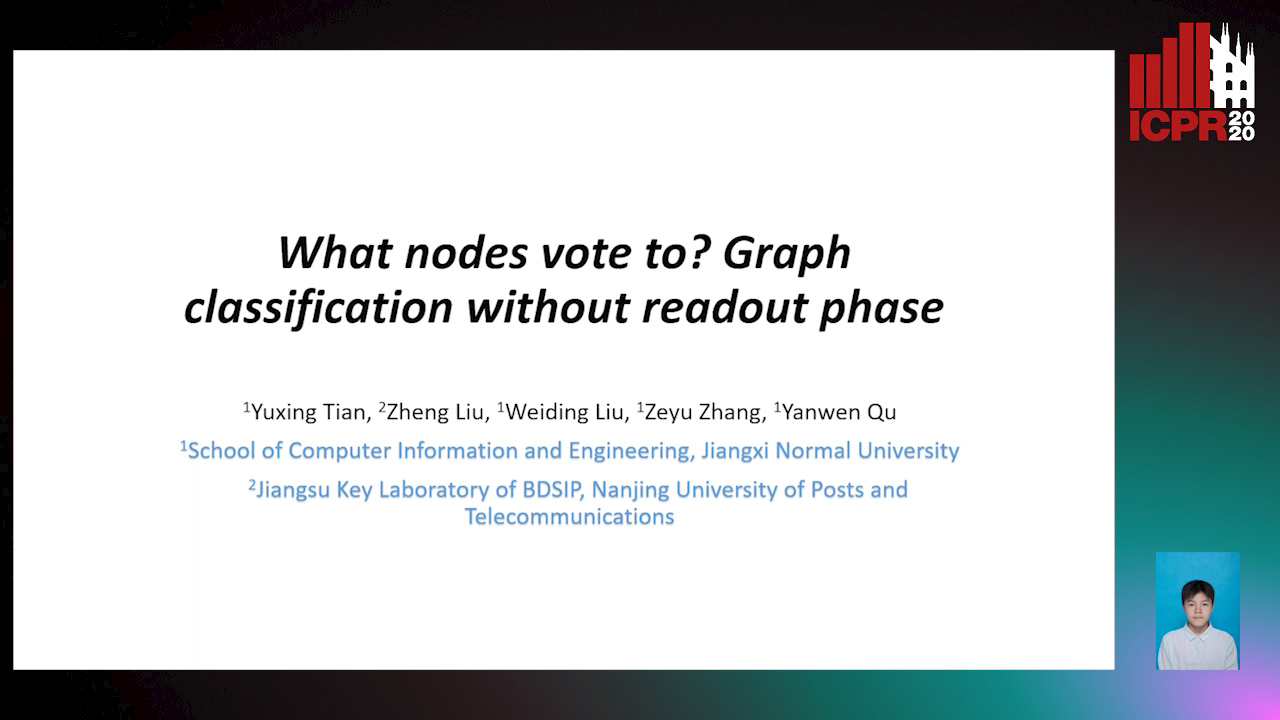Yanwen Qu
Paper download is intended for registered attendees only, and is
subjected to the IEEE Copyright Policy. Any other use is strongly forbidden.
Papers from this author
What Nodes Vote To? Graph Classification without Readout Phase
Yuxing Tian, Zheng Liu, Weiding Liu, Zeyu Zhang, Yanwen Qu

Auto-TLDR; node voting based graph classification with convolutional operator
Abstract Slides Poster Similar
In recent years, many researchers have started to construct Graph Neural Networks (GNNs) to deal with graph classification task. Those GNNs can fit into a framework named Message Passing Neural Networks (MPNNs), which consists of two phases: a Message Passing phase used for updating node embeddings and a Readout phase. In Readout phase, node embeddings are aggregated to extract graph feature used for classification. However, the above operation may obscure the affect of the node embedding of each node on graph classification. Therefore, a node voting based graph classification model is proposed in this paper, called Node Voting net (NVnet). Similar to the MPNNs, NVnet also contains the Message Passing phase. The main differences between NVnet and MPNNs are: 1, a decoder for graph reconstruction is added to NVnet to make node embeddings contain as much graph structure information as possible; 2, NVnet replaces the Readout phase with a new phase called Node Voting phase. In the Node Voting phase, an attention layer based on the gate mechanism is constructed to help each node observe the node embeddings of other nodes in the graph, and each node predicts the graph class from its own perspective. The above process is called node voting. After voting, the results of all nodes are aggregated to get the final graph classification result. In addition, considering that aggregation operation may also obscure the difference between node voting results, our solution is to add a regularization term to drive node voting results to reach group consensus. We evaluate the performance of the NVnet on 4 benchmark datasets. The experimental results show that compared with other 10 baselines, NVnet can achieve higher graph classification accuracy on datasets by using appropriate convolutional operator.